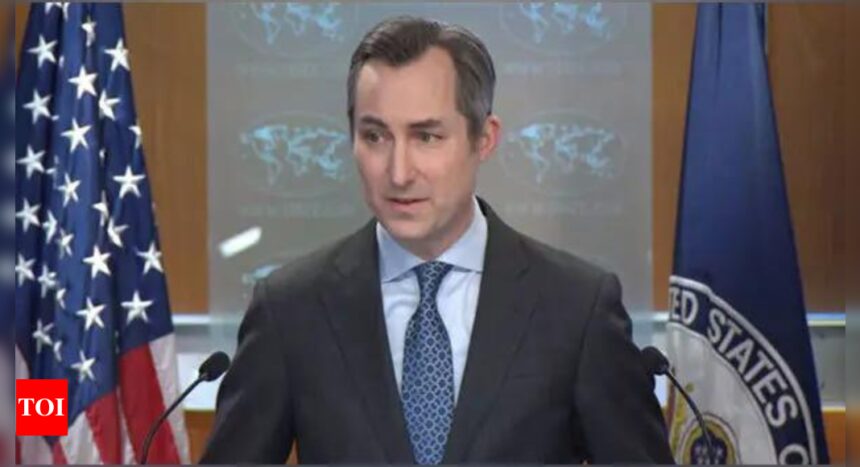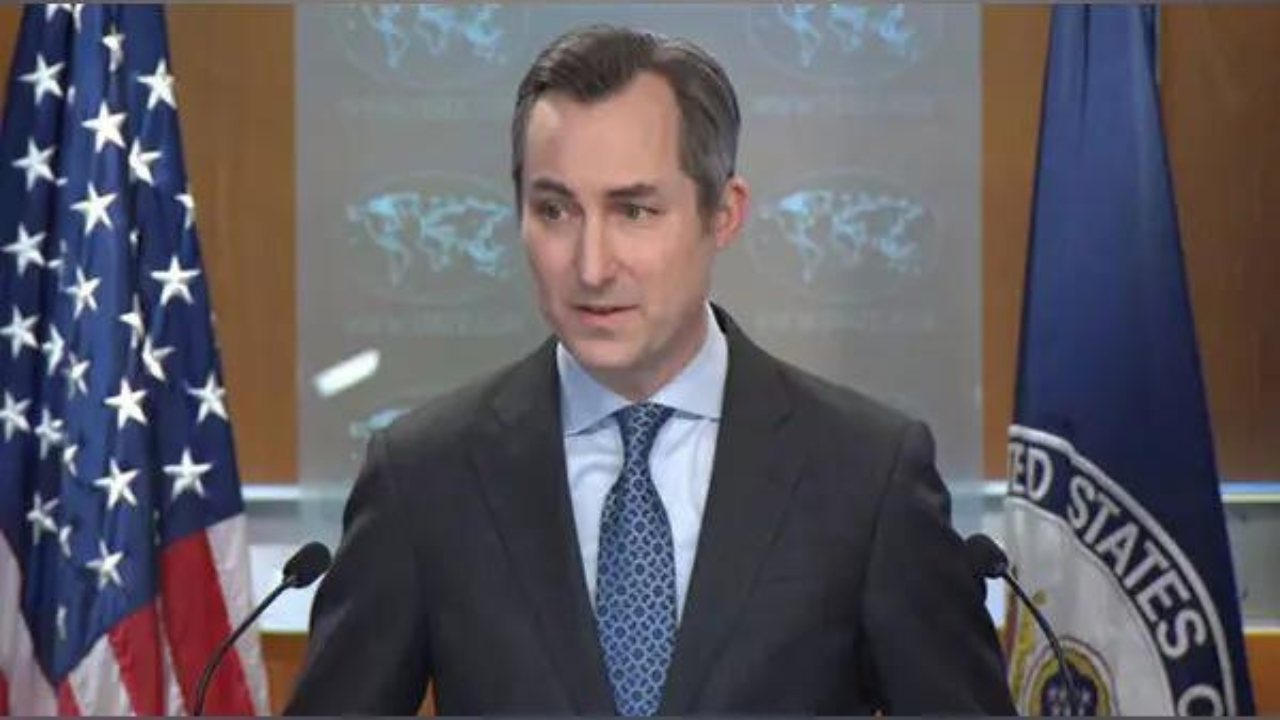ISLAMABAD: Reiterating its long-standing stance of denying support to Pakistan’s ballistic missile programme, the United States has said it will keep enforcing sanctions and employing other measures to safeguard its own national security and prevent proliferators from taking advantage of its financial system.
“We have been clear and consistent about our concerns with Pakistan’s ballistic missile programme for many years,” US state department spokesperson Matthew Miller said at a press briefing on Tuesday.
“It has been our longstanding policy to deny support to Pakistan’s long-range ballistic missile programme, and we will continue to use our sanctions and other — our other tools to ensure our national security cannot be — cannot be impacted, and that the US financial system cannot be used by proliferators,” said Miller.
Last week, the state department imposed sanctions on a Chinese research institute, a Chinese national, and three Chinese companies, alleging they had supplied missile-applicable items to Pakistan. In response, Pakistan had criticised Washington for the decision, calling it “biased and politically motivated”, saying similar listings of commercial entities in the past were prepared on mere suspicion and involved items not listed under any export control regime.
At the briefing Miller highlighted that the Chinese institute had allegedly assisted Pakistan in acquiring equipment for its Shaheen 3 and Ababeel missile systems, and potentially for larger systems.
The recent US sanctions had also targeted China-based firms Hubei Huachangda Intelligent Equipment Co, Universal Enterprise, and Xi’an Longde Technology Development Co, alongside Pakistan-based Innovative Equipment and a Chinese national, for knowingly transferring equipment under missile technology restrictions, said Miller.
The spokesperson also addressed a question pertaining to the real reasons and concerns that triggered the sanctions imposed on a Chinese research institute and several companies involved in supplying Pakistan’s ballistic missile programme. “So the United States is committed to strengthening the international nonproliferation regime by taking action against networks supporting activities of proliferation concern,” said the spokesperson.
“We have been clear and consistent about our concerns with Pakistan’s ballistic missile programme for many years,” US state department spokesperson Matthew Miller said at a press briefing on Tuesday.
“It has been our longstanding policy to deny support to Pakistan’s long-range ballistic missile programme, and we will continue to use our sanctions and other — our other tools to ensure our national security cannot be — cannot be impacted, and that the US financial system cannot be used by proliferators,” said Miller.
Last week, the state department imposed sanctions on a Chinese research institute, a Chinese national, and three Chinese companies, alleging they had supplied missile-applicable items to Pakistan. In response, Pakistan had criticised Washington for the decision, calling it “biased and politically motivated”, saying similar listings of commercial entities in the past were prepared on mere suspicion and involved items not listed under any export control regime.
At the briefing Miller highlighted that the Chinese institute had allegedly assisted Pakistan in acquiring equipment for its Shaheen 3 and Ababeel missile systems, and potentially for larger systems.
The recent US sanctions had also targeted China-based firms Hubei Huachangda Intelligent Equipment Co, Universal Enterprise, and Xi’an Longde Technology Development Co, alongside Pakistan-based Innovative Equipment and a Chinese national, for knowingly transferring equipment under missile technology restrictions, said Miller.
The spokesperson also addressed a question pertaining to the real reasons and concerns that triggered the sanctions imposed on a Chinese research institute and several companies involved in supplying Pakistan’s ballistic missile programme. “So the United States is committed to strengthening the international nonproliferation regime by taking action against networks supporting activities of proliferation concern,” said the spokesperson.
Source : Times of India









